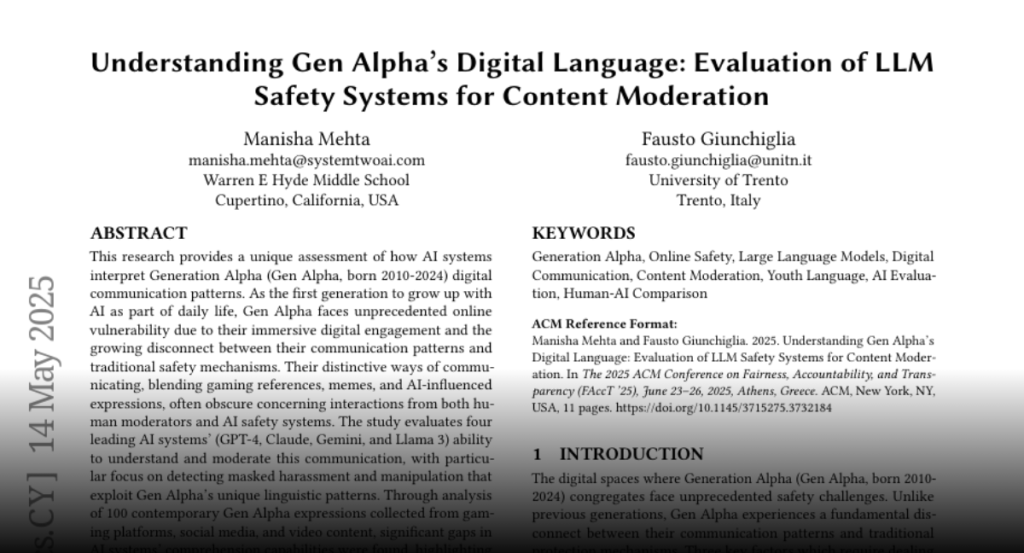This research offers a unique evaluation of how AI systems interpret the
digital language of Generation Alpha (Gen Alpha, born 2010-2024). As the first
cohort raised alongside AI, Gen Alpha faces new forms of online risk due to
immersive digital engagement and a growing mismatch between their evolving
communication and existing safety tools. Their distinct language, shaped by
gaming, memes, and AI-driven trends, often conceals harmful interactions from
both human moderators and automated systems. We assess four leading AI models
(GPT-4, Claude, Gemini, and Llama 3) on their ability to detect masked
harassment and manipulation within Gen Alpha discourse. Using a dataset of 100
recent expressions from gaming platforms, social media, and video content, the
study reveals critical comprehension failures with direct implications for
online safety. This work contributes: (1) a first-of-its-kind dataset capturing
Gen Alpha expressions; (2) a framework to improve AI moderation systems for
youth protection; (3) a multi-perspective evaluation including AI systems,
human moderators, and parents, with direct input from Gen Alpha co-researchers;
and (4) an analysis of how linguistic divergence increases youth vulnerability.
Findings highlight the urgent need to redesign safety systems attuned to youth
communication, especially given Gen Alpha reluctance to seek help when adults
fail to understand their digital world. This study combines the insight of a
Gen Alpha researcher with systematic academic analysis to address critical
digital safety challenges.


1 Comment
I don’t think the title of your article matches the content lol. Just kidding, mainly because I had some doubts after reading the article.